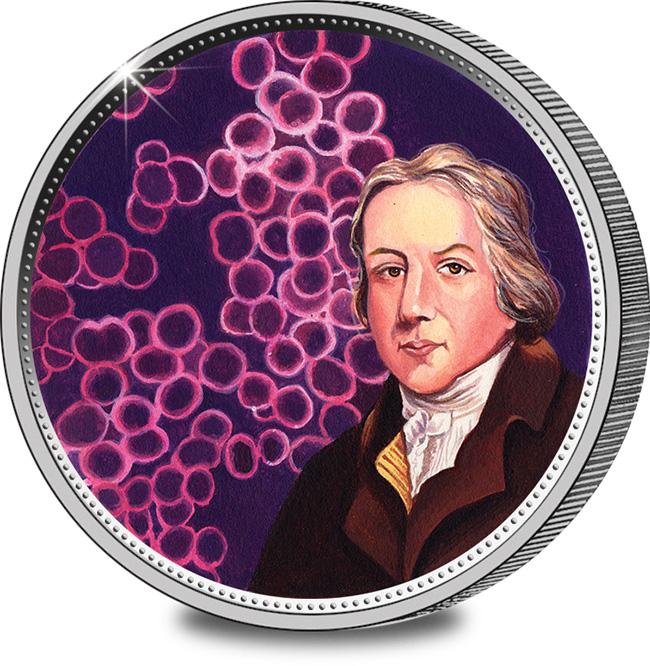
 |
Full name: Edward Jenner
Born: 17th May 1749
Invention/Achievement: Smallpox
Vaccine
Date of introduction/Achievement: 14th
May 1796 (First experimental inoculation)
Died: 26th January 1823
|
In the 18th Century, smallpox was a prolific and
deadly disease. It was estimated that 60% of the population
would catch smallpox and of these 20-30% would die.
Inoculation against the disease had been practised throughout
history, but often carried terrible risks.
Edward Jenner was a doctor with wide interests in medicine and
science. He was born in Berkley, Gloucestershire on
17th May 1749, the son of the vicar of Berkley. At
14 he was apprenticed to a local surgeon and later to a surgeon at
St George's Hospital, London.
On qualifying in 1772 he returned to Berkley, where he became a
successful family doctor and surgeon. With other doctors he
formed the Fleece Medical Society, which met in the Fleece Inn,
Rodborough to dine and read and discuss papers on medical matters.
In 1788 he was elected a member of the Royal Society following
his presentation of a groundbreaking paper on the life and habits
of the cuckoo. While practising as a doctor he became aware
that milkmaids were reputed to be immune to smallpox, because of
the milder form of cow pox they caught from the cows they milked.
Jenner had been taught by his surgeon master to follow William
Harvey's dictum: "Don't think, try", and on 14th May
1796 he inoculated eight-year old James Phipps, the son of his
gardener, with pus scraped from a blister on the hands of milkmaid
Sarah Nelmes. The boy suffered a fever but nothing worse.
Later, in a procedure that would probably get him arrested
today, he injected matter from a smallpox sufferer into the boy,
who suffered no ill-effects. Jenner submitted his findings to
the Royal Society but was told he needed more proof. Jenner
therefore carried out more experiments on children (including his
own 11-month old son) and finally published his paper in 1798.
Despite opposition from the church and other doubters, Jenner
repeated his experiments and proved the immunity of his subjects.
His ideas spread around the world and in 1979 smallpox was
declared an eradicated disease by the World Health Organisation.
Jenner died of a stroke on 26th January
1823.